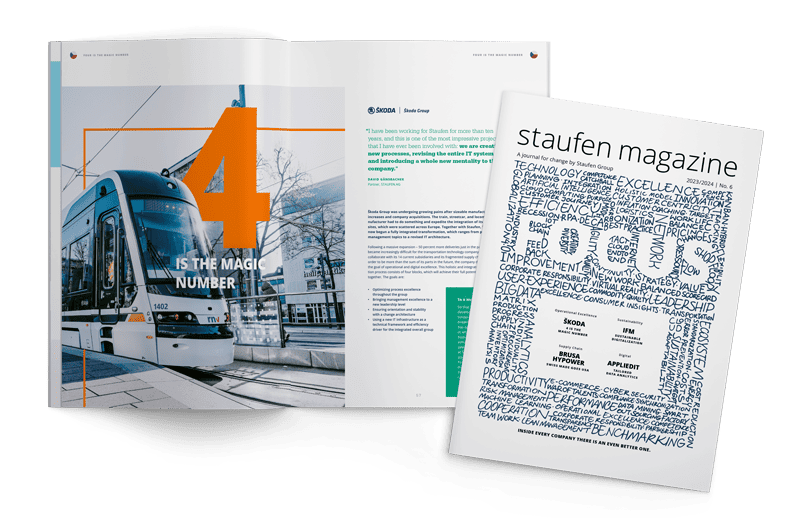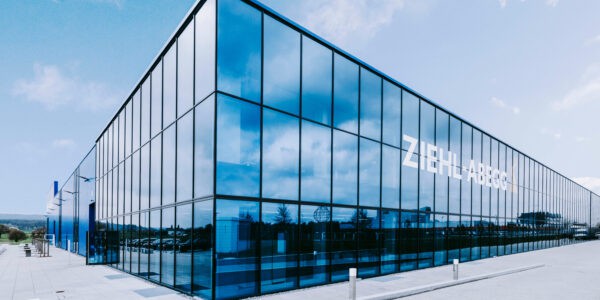
In an interview with Michael Hellmann, Site and Production director at Mercedes-Benz in Düsseldorf
Mr. Hellmann, when you took over management of the Mercedes-Benz plant in Düsseldorf, the world was in the midst of the consequences of the corona pandemics. What was your goal when you started your job?
I had a clear priority list. Point 1: protect the employees. Point 2: ensure production in Düsseldorf in the short, medium and long term. My predecessor did an excellent job, so I was able to fall back on a very experienced and well-established team. Despite the delivery bottlenecks as a result of the corona pandemic and the effects of the war in Ukraine, we have achieved our goals and successfully further developed our strategy for digital transformation and the shift to e-mobility. This also means that the next generation of vans will also be produced here in Düsseldorf. This secures the future of the location.
With the current crises, the emergency seems to have become the norm. How does this affect the staff?
The past extreme situations have shown that the workforce can handle difficult situations and knows how to deal with crises. People also support uncomfortable decisions when they are necessary. Together, we have shown that we can shape change in a positive way. At the same time, I am very happy that we have returned to normal in many respects.

Michael Hellmann
Site and production director
Mercedes-Benz AG

Michael Hellmann
Site and production directorMercedes-Benz AG
Since January 2021, Michael Hellmann has been running the Mercedes-Benz site at Düsseldorf as a site and production director. Before that, the production expert worked in Beijing as a Director MBC Engineering & Manufacturing at Beijing Benz Automotive Co. He started his career 1988 as part of a dual study program at Daimler-Benz AG and was active for the group at Rastatt, Juiz de Fora in Brazil, Bremen, and various other sites in leading positions.
Read moreKeyword positive change: Together with Staufen, you implemented a classic project to increase performance from body shell to painting to assembly last year in Düsseldorf. What were the biggest challenges?
The greatest challenge is always getting people on board, especially when things are already going well. Nevertheless, we wanted to change and adapt our processes, also to be prepared better for future requirements. The key to success in such a process is not to hide behind theory, but to be convincing in practice. That’s why we made a conscious decision to work with Staufen, because we know that the Staufen consultants have the necessary industry expertise and enough practical relevance to involve our employees closely in the processes.
Did the plan work?
My expectations were fully met, also because we managed to integrate all employees in Düsseldorf. The consultants led the change process and took everyone with them – not with PowerPoint presentations, but directly on the shop floor. This understanding of a positive change process must now be maintained in the long term. Because even if the current project is completed, we are still a long way from reaching our goal. We want to develop continuously and from our own resources, and adapt the processes to future tasks again and again. With regard to the further conversion and ramp-up of e-mobility, as well as the coming generation of vehicles, we are well prepared for the future.
What did you focus on in this project? Was it about the further development of processes or the people involved?
That goes hand in hand. Of course, we have to further develop products and technology in order to remain marketable. This requires adapted processes that people support and bring to life. That is why the development of the people involved is essential, especially in a transformation phase, and we took this into account accordingly in the project with Staufen. When introducing new systems and processes, managers also have a special responsibility, and they have to work in two directions: on the one hand, constantly questioning and optimizing the process, on the other hand, making the process understandable and usable for employees, for example when using digital tools. Managers must set a good example – not just expecting performance, but also leading the way and showing it. The clear view in the mirror is important!
Is the Düsseldorf location prepared for the challenges of the future?
We are very well positioned, as shown, for example, by the contract for the production of the next generation of vehicles and the trust that comes with it. In the area of light commercial vehicles, we will continue to be able to meet all customer requests in the future – with both electric and combustion engines. We have the necessary flexibility in the factory as well as the experience and the know-how to meet demand.
the company
In the Mercedes-Benz plant in Düsseldorf, around 5,600 employees are engaged in the production of light commercial vehicles. Around 111,000 vans were manufactured last year on a production area of 325,000 square meters. The Düsseldorf plant, founded in 1962, plays a leading role in the worldwide production network of Mercedes-Benz Vans. All closed variants of the Mercedes-Benz Sprinter and eSprinter roll off the assembly line here.
5.600
employees
1962
founded
325.000
m2 production area
111.000
manufactured vans 2022
Request the English Magazine now as a digital or print version

You might also be interested in

Wind of change
In order to be able to continue to process the constantly growing number of orders to their satisfaction, ZIEHL-ABEGG has started a lean transformation at its largest production site. Greater efficiency and leadership excellence should ensure consistent product quality and high delivery reliability at all locations in Germany and abroad.
Read more
Lean Management: The path to winning mentality
The Binder family company shows how lean management can not only make you better and faster, but also inspire employees and customers. Our current study “Future Industry 2023” also underlines how effective lean management is for companies to develop more resilience despite cost pressure.
Read more
The costumer journey is taking a new direction
General Motors symbolizes the American way of life as much as the American way of doing business. This includes regular reports, number-heavy business forecasts and detailed activity reports. But how can such detailed insight and outlook succeed in an agile startup? The Chinese subsidiary of the US car giant – General Motors Premium Import – which is currently being set up, uses a Hoshin Kanri methodology specially adapted for GM by Staufen AG.
Read more



